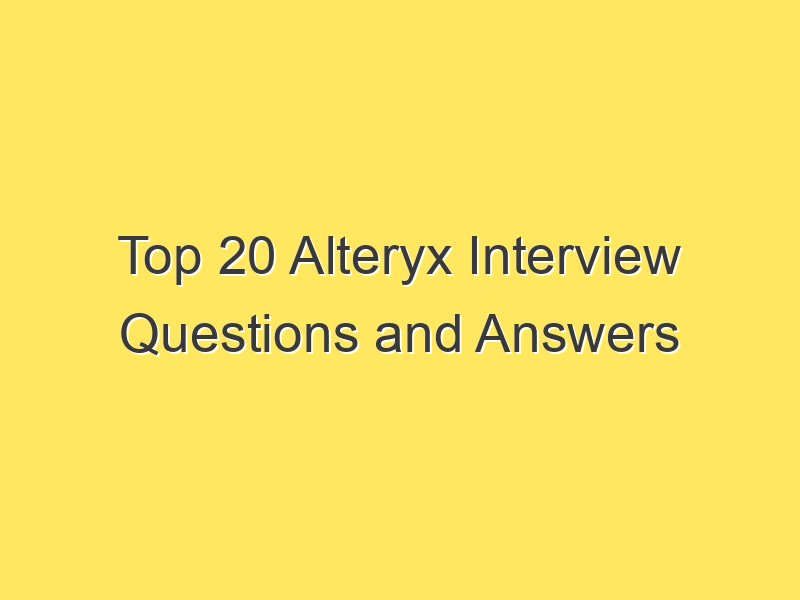Top DevOps Interview Questions and Answers for Success 2023:
DevOps is a critical discipline in modern software development and IT operations, focusing on automation, collaboration, and continuous improvement. As organizations increasingly adopt DevOps practices, the demand for skilled DevOps professionals has surged. If you’re preparing for a DevOps interview, you’ll want to be well-prepared to demonstrate your knowledge and expertise. In this article, we’ve compiled a list of top DevOps interview questions and provided detailed answers to help you succeed in your interview.
Post Contents

-
What is DevOps, and why is it important?
Answer: DevOps is a cultural and technical movement that emphasizes collaboration, automation, and continuous improvement between software development (Dev) and IT operations (Ops) teams. It aims to deliver software faster, more reliably, and with higher quality. DevOps is essential because it accelerates software delivery, improves collaboration, reduces errors, and enhances the overall efficiency of the development and operations processes.
-
Explain the key principles of DevOps.
Answer: DevOps principles include:
a. Collaboration: Encourage cross-functional teams to work together seamlessly. b. Automation: Automate repetitive tasks to increase efficiency and reduce errors. c. Continuous Integration (CI): Integrate code changes frequently to detect issues early. d. Continuous Delivery (CD): Automate the deployment pipeline for rapid and reliable releases. e. Monitoring and Feedback: Collect and analyze data to make informed decisions and continuous improvement.
-
What is the difference between Git and SVN?
Answer: Git is a distributed version control system, while SVN (Subversion) is a centralized version control system. Git allows developers to work offline, supports branching and merging efficiently, and provides a more flexible workflow. SVN requires a centralized server and has limitations in branching and merging capabilities.
-
What is Infrastructure as Code (IaC)?
Answer: IaC is a practice of managing and provisioning infrastructure (servers, networks, and other resources) using code and automation scripts. It enables infrastructure to be treated as code, making it easier to manage, version, and replicate. Popular IaC tools include Terraform, Ansible, and AWS CloudFormation.
-
Explain the concept of Docker containers.
Answer: Docker containers are lightweight, portable, and isolated environments that package applications and their dependencies. They provide consistency across different environments, making it easier to develop, test, and deploy software. Docker containers use a shared OS kernel, which reduces overhead and enhances resource utilization.
-
What is Continuous Integration (CI) and Continuous Deployment (CD)?
Answer: CI is a practice that involves integrating code changes into a shared repository frequently, running automated tests, and detecting and addressing issues early in the development process. CD extends CI by automating the deployment of code changes to production or staging environments, ensuring a smooth and reliable release process.
-
How does Jenkins help in the CI/CD pipeline?
Answer: Jenkins is a popular open-source automation server that plays a crucial role in CI/CD pipelines. It automates building, testing, and deployment processes by allowing developers to create pipelines as code. Jenkins can integrate with various tools and platforms, making it a versatile choice for CI/CD automation.
-
What is the “Blue-Green Deployment” strategy?
Answer: Blue-Green Deployment is a deployment strategy that involves maintaining two identical environments, “Blue” and “Green.” At any given time, one environment serves as the production environment, while the other remains inactive. This strategy allows for zero-downtime deployments by switching traffic from one environment to the other during updates or testing.
-
How do you ensure the security of a DevOps pipeline?
Answer: Security in DevOps involves practices like code scanning for vulnerabilities, secure configuration management, access control, and regular security testing (e.g., penetration testing). Security should be integrated into every stage of the pipeline to identify and address issues early and automate security checks.
-
What is the role of monitoring and observability in DevOps?
Answer: Monitoring involves tracking system performance and health in real-time, while observability refers to the ability to understand system behavior from its outputs. DevOps relies on monitoring and observability to detect issues, troubleshoot problems, and gather insights for continuous improvement.
Conclusion:
DevOps is a transformative approach that enhances collaboration, automation, and efficiency in software development and operations. Preparing for DevOps interviews can be challenging, but mastering these questions and their answers will demonstrate your expertise in the field. Remember that interviews may include additional questions specific to the company’s tools and processes, so be prepared to adapt your knowledge to the organization’s needs. Good luck with your DevOps interview!
Frequently asked questions (FAQs) on DevOps:
1. What is DevOps?
- DevOps is a set of practices that combines software development (Dev) and IT operations (Ops) to streamline and automate the software delivery process, enabling faster, more reliable, and frequent software releases.
2. Why is DevOps important?
- DevOps is essential because it promotes collaboration between development and operations teams, accelerates software delivery, improves code quality, reduces errors, and enhances overall efficiency.
3. What are the key principles of DevOps?
- The key principles of DevOps include collaboration, automation, continuous integration, continuous delivery, and monitoring and feedback.
4. What is Continuous Integration (CI)?
- CI is a practice in which code changes are frequently integrated into a shared repository, automatically built, and tested to ensure early detection of issues.
5. What is Continuous Deployment (CD)?
- CD extends CI by automating the deployment process, allowing code changes to be automatically deployed to production or staging environments, ensuring a rapid and reliable release process.
6. What are some popular DevOps tools?
- Popular DevOps tools include Jenkins, Git, Docker, Kubernetes, Ansible, Terraform, and monitoring tools like Prometheus and Grafana.
7. What is Infrastructure as Code (IaC)?
- IaC is a practice of managing and provisioning infrastructure using code and automation scripts, making it easier to manage, version, and replicate infrastructure components.
8. What are containers, and how do they relate to DevOps?
- Containers, like Docker, are lightweight, portable, and isolated environments that package applications and their dependencies. They facilitate consistency across different environments and streamline deployment in DevOps pipelines.
9. What is the difference between Blue-Green Deployment and Canary Deployment?
- Blue-Green Deployment involves maintaining two identical environments (blue and green) and switching between them during updates, ensuring zero-downtime deployments. Canary Deployment releases updates gradually to a subset of users or servers to detect issues before a full rollout.
10. How can security be integrated into a DevOps pipeline? – Security can be integrated through practices like code scanning for vulnerabilities, secure configuration management, access control, and regular security testing, such as penetration testing.
11. What is the role of monitoring and observability in DevOps? – Monitoring involves tracking system performance and health in real-time, while observability focuses on understanding system behavior from its outputs. Both are crucial for detecting and resolving issues and improving system reliability.
12. How can a company transition to DevOps practices? – Transitioning to DevOps involves cultural change, process improvement, and tool adoption. Companies can start by fostering collaboration, automating manual tasks, and gradually introducing DevOps practices into their workflows.
These FAQs provide a foundation for understanding DevOps concepts and practices. Depending on the specific job role and organization, DevOps interview questions may vary, but having a solid understanding of these fundamentals will be beneficial for any DevOps professional.







